The view was jaw-dropping, as good as it gets for bird-lovers, or for those who just appreciate an amazing sight when they see it. This morning I was at Wheeler National Wildlife Refuge, near Decatur, Alabama, at the peak of winter migration of the Sandhill Cranes, who began their journey in Wisconsin and southern Canada.
This morning I was at Wheeler National Wildlife Refuge, near Decatur, Alabama, at the peak of winter migration of the Sandhill Cranes, who began their journey in Wisconsin and southern Canada.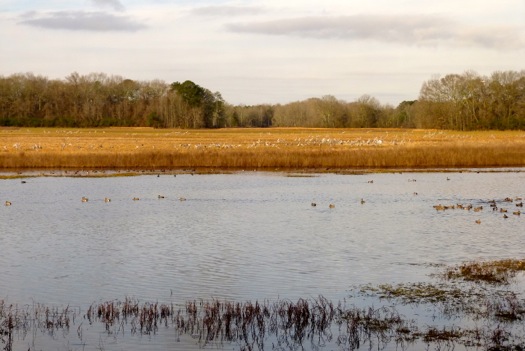
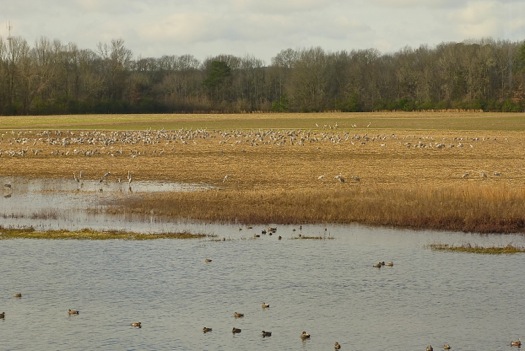
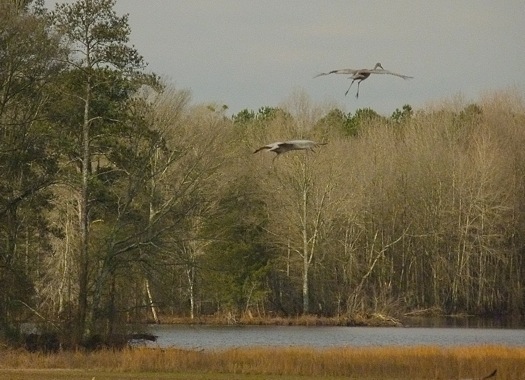
 There were literally thousands of Sandhill Cranes, along with even more thousands of different types of ducks.
There were literally thousands of Sandhill Cranes, along with even more thousands of different types of ducks.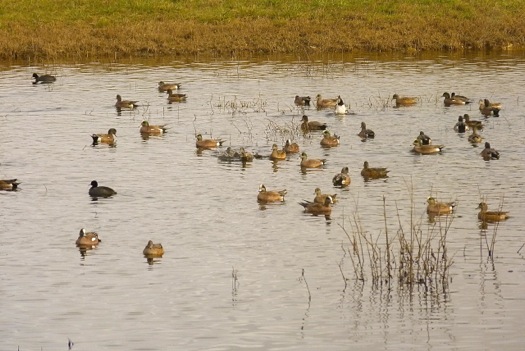
And four Whooping Cranes. In the following photo, you can see the four Whooping Cranes. They are white, and their legs are banded. The rest of the cranes are the Sandhills, which are gray:
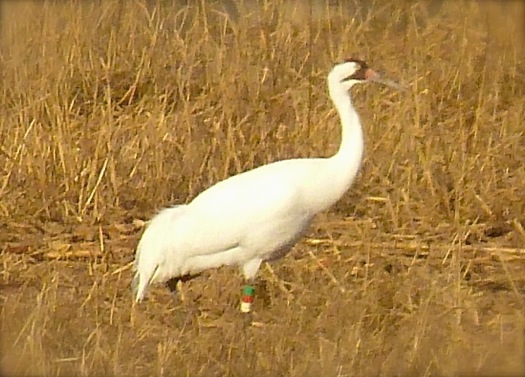 The Whooping Crane is an endangered species, whose numbers at one time dropped to a perilous twenty-one. Careful management has increased their numbers to about 440 in the wild and 160 in captivity, still a very rare bird. There are actually five Whooping Cranes at the refuge, but number five was in another part of the refuge, which covers 35,000 acres.
The Whooping Crane is an endangered species, whose numbers at one time dropped to a perilous twenty-one. Careful management has increased their numbers to about 440 in the wild and 160 in captivity, still a very rare bird. There are actually five Whooping Cranes at the refuge, but number five was in another part of the refuge, which covers 35,000 acres.
The refuge offers diverse habitat types that provide excellent feeding, resting, and roosting sites for wintering cranes and waterfowl, as well as nesting sites for migratory songbirds and many species of resident wildlife. In a share agreement, local farmers cultivate several thousand acres of cropland inside the refuge, and a portion of the crops is left in the field as a food source for wildlife.
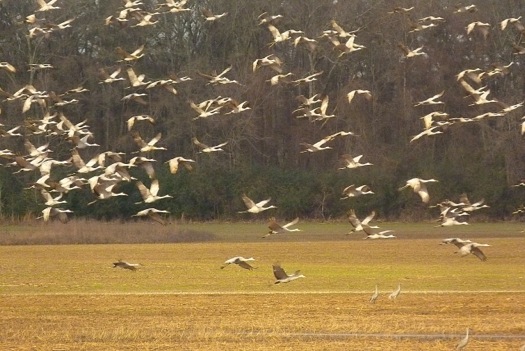
 A trio of flying Sandhill Cranes.
A trio of flying Sandhill Cranes.
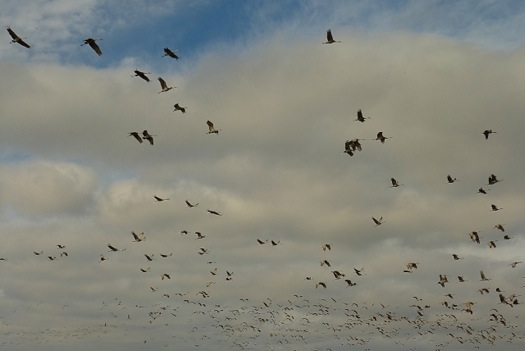
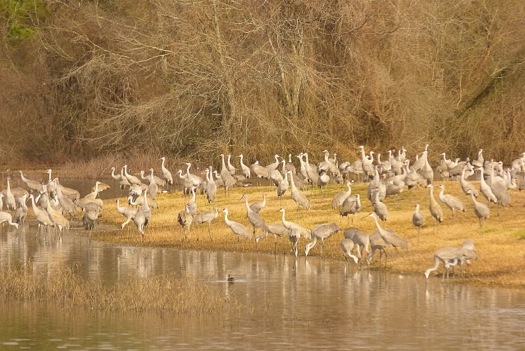
 White Pelicans fly over in formation.
White Pelicans fly over in formation.
Most of these photos were taken from within the comfort of an enclosed observatory, but there are a number of trails inside the refuge to accommodate birders and other wildlife lovers.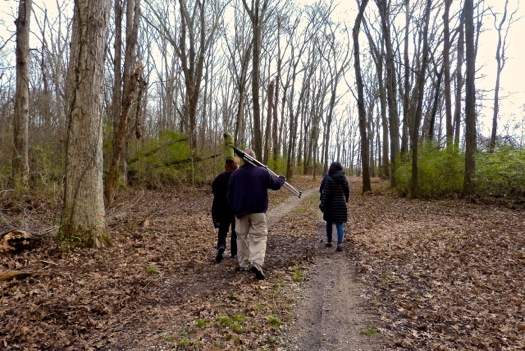
I woke up at 5:00 a.m. on a Saturday morning to drive up to see all this. It was worth it!